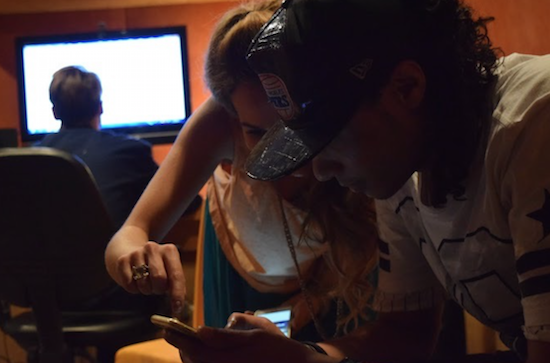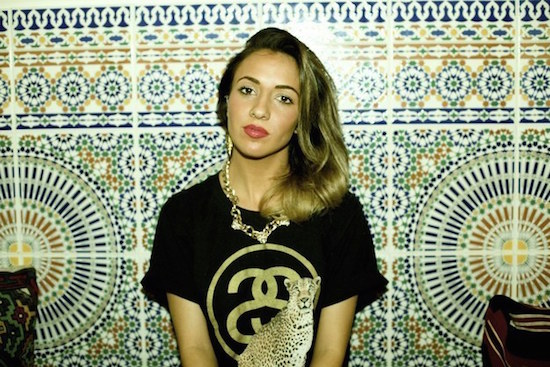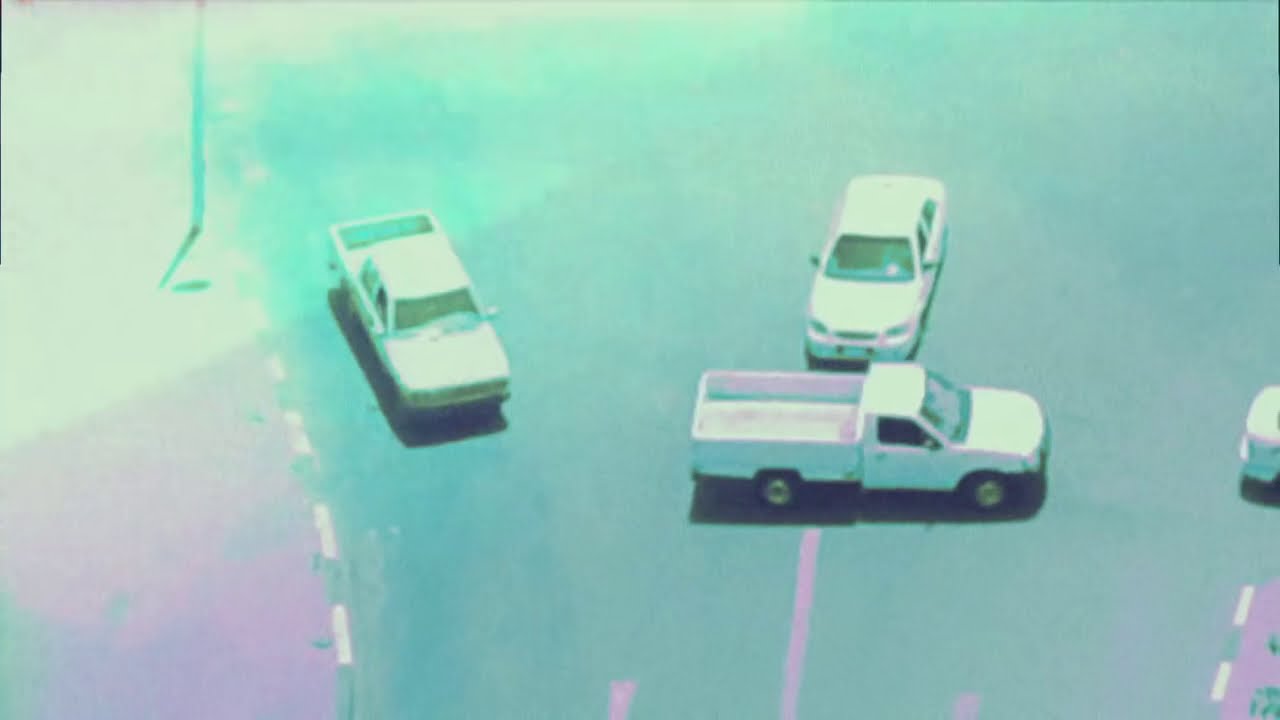Late last year London R&B singer/producer TĀLĀ released MALIKA, an EP featuring collaborations with a number of artists from across the globe. These included the Turkish pop singer Atiye and Korean girl group WA$$UP, but perhaps most significantly for tQ readers she managed to record with Sadat and Alaa Fifty, two of the most prominent MCs in Egypt’s Electro Chaabi scene. Together they came up with the blistering ‘Enta Ayez’, which sees the Chaabi artists’ auto-tuned vocals strafing wildly over TĀLĀ’s agile beats.
tQ caught up with TĀLĀ to discuss her collaboration with Sadat and Fifty, Egypt, and the development of her production style.
You’ve assembled a truly global cast of collaborators for the ‘MALIKA’ EP. Was this a conscious decision?
TĀLĀ: Before we did MALIKA I was trying to get away from doing a normal EP and doing something a little bit different. I wanted to do something freer and more collaborative. At the same time I’d been doing a little bit of travelling before, and I had heard about what was going on in Egypt with the Electro Chaabi stuff. I just thought it would be really interesting to work work with artists from different places and see what happened. I liked the idea of doing something a bit risky, and I wanted to work with different artists that we don’t hear in our mainstream music.
So it was just really a process of travelling around?
T: I had a brief idea before I went out. With Sadat and Fifty for example I’d already been following them and heard quite a lot of their stuff before. It all happened quite naturally, I just had rough ideas of who I wanted to work with and where I wanted to go. The risk is you just don’t know whether it’s going to work out. Going there for three days, it could be a disaster, I don’t speak the same language, you know.
When did you first become aware of Electro Chaabi?
T: I’d heard quite a bit about it earlier on this year, I’d been looking at some of the stuff that was going on there. I’d seen a Boiler Room set with Sadat, I believe Amr Haha his producer was there as well. I was just doing a bit of research, going on a late night Youtube hunt. I found it really interesting, I love what they do. It was sick that they were pioneering that sound, they started a movement with it.
How did the collaboration with Sadat and Alaa Fifty come about?
T: I’d been researching a lot what was going on with Chaabi before then. I can’t remember exactly how it happened, but somehow they’d heard of me, we got talking, then it was like, “Yeah, come to Egypt.” So I was like, “Sick, I’m gonna go.” It was a very natural thing. I feel that when you’re collaborating with someone it’s a lot to do with the chemistry, and it just seemed really easy. I liked the idea of going there to be in their surroundings, I wanted to go to their label 100 Copies and just see how they operate and where they work from. That’s the way to genuinely work with them. If I’d have brought them here we would have made something but I don’t think it would be the same as me going to them. I’m really glad I did. There was loads of challenges when we were in Egypt with getting there but it was so worth it. It was a great experience.
What were those challenges?
T: There’s still a lot of tension there, you can feel it. Being two girls walking round on your own isn’t the best idea so we were always in a group. Fifty and Sadat are absolute gentlemen, they just took care of us. They treated us like queens, and they’re literally the kings there. General every day stuff was difficult, there’s bomb detectors everywhere. Just walking out of your hotel is pretty scary; it’s very tense. Talking to Sadat and 50 about the last revolution that happened, telling us how many of their friends were killed, you just can’t believe that’s what they were seeing every day. At the same time I feel like that is why there’s such an interesting underground music scene there. The youth have got something to say. They’re the new generation, I feel like there’s a big change there and I think you can kind of see that in the underground music scene. I think there’s a massive contrast between the traditional music and the newer stuff that’s coming up like Chaabi. It’s not just regurgitated bullshit, what they’re talking about is real.
Do you think Electro Chaabi is political?
T: I wouldn’t say it’s necessarily a political movement, but I feel like there’s definitely the energy of the young people there that have a lot to say. When I was there I was trying to get a hold on what tempos they work at, what tunes they’re into, finding the common ground. It’s very autotune-heavy. They work to a certain bpm and bar arrangement; they have a certain format. As a producer I want them to do their thing, I want to bring out what they do best.

Was there a language barrier issue at all?
T: Yeah, I don’t’ speak Arabic, I wish I did. They don’t speak English, so it was quite an interesting experience for me. They had Mahmood there, their manager, who basically translated for the sessions. It was interesting with him translating, because everything they (the MC’s) would passionately say to me I’d be like “Yeah, sounds good! But I don’t know what you’re saying.” So I was just working off their energy. I’ve never had that before, working with a translator in the room. Even though I can’t understand what we’re saying we feed off each other’s energy. When you’re in a creative environment sometimes language isn’t a barrier. It’s like speed dating (collaborating). They might be the sickest, most talented person that I’ve always wanted to work with but we might just not have that chemistry. If the chemistry’s not there it ca be pretty challenging. The track’s a personal favourite. I just want more people to know about them and see them.
Are there any more plans to work with them in the future?
T: I definitely want to do more stuff with them, and we’ve already talked about it when I was out there.
When did your interest in production start? Did you produce the EP?
T: I started playing piano when I was younger, just going through the grades and stuff. When I got to 12-13 my friend got a copy of Reason and I just started putting my ideas down. I didn’t really know what I was doing. I love all that early Timbaland, Missy stuff.
From that I was just experimenting with ideas. I got to a point when I had ideas for songs and I needed someone to sing. I didn’t really know anyone to sing so I just thought “Fuck it, I’m just going to have to do the singing thing as well because it makes my life a little bit easier.” I wasn’t one of those people who started singing at age 5 and had the voice of Whitney Houston, I just had to keep working at it, but I didn’t really know what I was doing.
Me and Mssingno produced a track together, and WA$$UP came in at the end of the process. Me and Banks wrote a song together but the beat is one of my beats. ‘Praise’ is a collaboration with Sylas so we produced that together. There was a little idea we had with a Boyz II Men sample in it.
I got quite a strong rave feel from the EP. Was that style of dance music an influence?
T: Yeah, I’m glad that you picked up on that. I love all that kind of stuff. I think that’s something I’m experimenting with now. It’s stuff that I’ve just kind of found, stuff that my brother had on CD’s. Really mad hardcore, happy hardcore type stuff, I like how mental it sounds.
Your father was Iranian and a musician.
T: He wasn’t a musician. I call him a frustrated musician because he had every instrument in the house. He wasn’t actually trained, he would just pick stuff up and just play it. He wasn’t a professional, he was actually in the restaurant business. That was his love, he was just a frustrated artist who always wanted to have a jam session.
Definitely, it’s a weird one because it’s not something that I’d consciously think of. When your 5 years old you’re absorbing all of those sounds, the music that my dad would play to me. You’re like a sponge at that age, I think I subconsciously lean towards those certain sounds. It’s one of those nostalgia things that takes you back to your childhood. I love Arabic and Persian music, and there’s a lot of interesting Persian 70’s funk, some of those records are so interesting. The grooves are so different, it’s not a standard 4/4 that people regurgitate over here, you’ve got mad rhythm sections and tempos. That’s the kind of stuff I listen to in my spare time. That’s what interests me, the groove and the swing is really different.
MALIKA is out now on Columbia.



